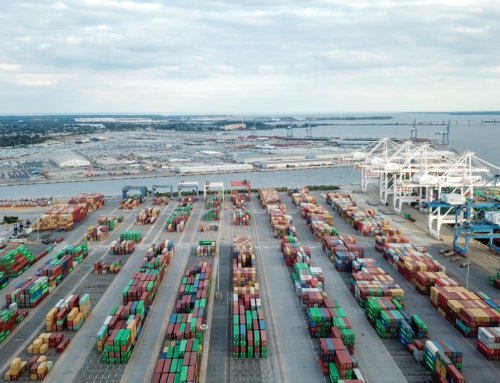Showing that they have moved beyond the “educate while you regulate” stage of implementation, the U.S. Food & Drug Administration (FDA) issued the first official Warning Letter for failure to comply with FSVP regulations to a tahini food importer after a multi-state Salmonella Concord breakout.
While the importer did conduct a voluntary recall and removed the brand completely from the market, the breakout triggered an FSVP inspection at which time a Form 483 was issued detailing the violation and steps to compliance. Should an importer fail to respond and implement the required FSVP, the FDA may issue a public Warning Letter and place the violator on an import alert list until the issues are resolved.
WHEN IS AN FDA FORM 483 ISSUED?
An FDA Form 483 is issued to firm management at the conclusion of an inspection when an investigator(s) has observed any conditions that in their judgment may constitute violations of the Food Drug and Cosmetic (FD&C) Act and related Acts. FDA investigators are trained to ensure that each observation noted on the FDA Form 483 is clear, specific and significant. Observations are made when in the investigator’s judgment, conditions or practices observed would indicate that any food, drug, device or cosmetic has been adulterated or is being prepared, packed, or held under conditions whereby it may become adulterated or rendered injurious to health.
As reported back in December of last year, the FDA warned that in 2019, they would begin stricter enforcement for violating companies that have not shown effort towards developing the required FSVP compliance programming.
FSVP is one of seven initiatives under the Food Safety Modernization Act (FSMA) and has been in effect since May 2017.
DOWNLOAD GREEN PAPER: FSVP GUIDANCE TO COMPLIANCE
WHAT ARE THE 6 KEY ELEMENTS TO FSVP COMPLIANCE?
- conducting hazard analyses for imported food (section 1.504),
- evaluating the food and the foreign supplier (section 1.505),
- determining and performing supplier verification activities (section 1.506),
- taking corrective actions (when necessary) (section 1.508),
- ensuring importer identification at entry (section 1.509), and
- maintaining records (section 1.510).
WHO IS RESPONSIBLE FOR FSVP COMPLIANCE?
The regulation on Foreign Supplier Verification Programs (FSVP) applies to U.S. importers of food.
In general, the importer will need to obtain assurances that its supplier is producing food using processes and procedures that provide the same level of public health protection as those required under the preventive controls requirements in 21 CFR part 117 or 507 or under the produce safety regulation (21 CFR part 112), as well as assurances that the food is not adulterated and not misbranded with respect to allergen labeling.
DOES THE IMPORTER HAVE TO DO IT OURSELVES?
The FSVP importer of a food might choose to rely on others to conduct certain FSVP activities, provided the importer reviews and assesses the results of these activities. For example, an importer may rely on a hazard analysis of a food conducted by the foreign supplier, and an importer might rely on the results of an independent third-party audit of the supplier that the supplier has requested.
Supplier verification activities must provide assurances that the hazards requiring a control in a food have been significantly minimized or prevented. Depending on what verification activities the importer conducts, the importer might request information from the foreign supplier, such as results of audits or copies of relevant food safety records, so that it can meet its verification requirements.
FDA RESOURCES FOR COMPLIANCE SUCCESS
- FSVP webpage
- FSVP Q & As
- The ‘Am I Subject to FSVP’ flow diagram
- The FSMA Training Strategy webpage
- The Food Safety Preventive Controls Alliance
Stay up-to-date on freight news by following Green Worldwide on Facebook, Twitter, and LinkedIn. For continuous updates, make sure to check out our website at greenworldwide.com.






